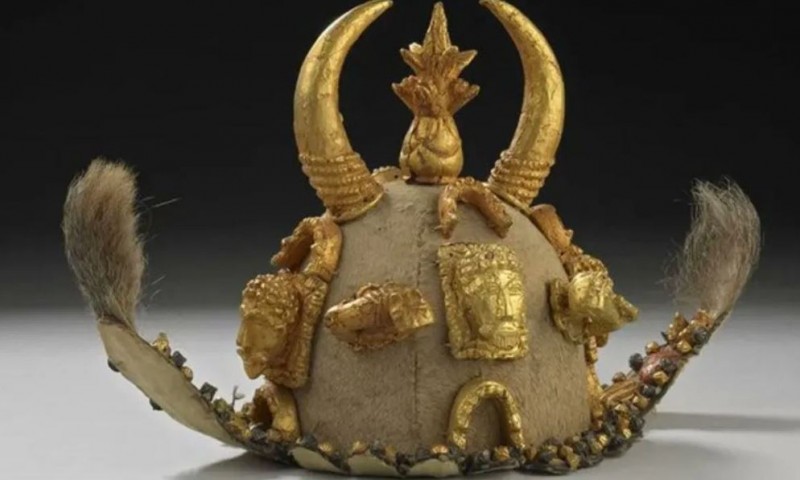
In a significant move, the British government has decided to return a crown and 31 other artifacts to Ghana, which were looted 150 years ago from the Asante royal court in Ghana. The crown, along with various treasures, including gold and jewels, had been housed in the Victoria and Albert Museum for several years, sparking demands from Ghana for their repatriation.
During the era of British colonial rule, spanning three centuries, the British Empire exercised dominion over numerous countries, including India. While the British justified their governance as a means to foster development, it often involved the exploitation of the resources of the colonized nations, leading to the accumulation of vast wealth, including gold, silver, diamonds, and even the crowns of several monarchs. When these countries gained independence, there were calls for the return of their seized treasures.
The specific crown in question was taken from the Asante royal court in Ghana 150 years ago. Reports indicate that it has been housed in the Victoria and Albert Museum for many years, prompting continuous appeals from the people of Ghana for its return. The decision to repatriate the crown comes after years of negotiations and demands for restitution.
Surprisingly, the agreement to return the crown and other items was not made with the government of Ghana but with Otumfuo Osei Tutu II, the ruler of the Asante kingdom. Experts suggest that this decision may be linked to the Asante king's participation in the coronation of King Charles last year, indicating a symbolic gesture towards strengthening ties.
This decision follows a previous ban by the British government on returning items held in national museums to their countries of origin. This policy had faced global opposition, with critics arguing that such artifacts rightfully belong to the nations from which they were taken. However, in recent times, there has been a shift in this stance, with some items being returned on a case-by-case basis.
Tristram Hunt, the director of the Victoria and Albert Museum, commented on this trend, stating that if the practice of returning items continues, museums worldwide might eventually be emptied. The delicate balance between preserving historical artifacts and acknowledging the rightful ownership remains a subject of ongoing debate.
Ghana's main spokesperson on this matter highlighted that the agreement goes beyond the crown, encompassing 31 additional items. The return of these artifacts signifies a triumph for Ghana in its pursuit of reclaiming its cultural heritage. The move is seen as a step towards rectifying historical injustices and fostering cultural diplomacy.
The decision to return the artifacts to the Asante kingdom may set a precedent for other countries seeking the repatriation of their looted treasures. The global discourse on the restitution of cultural artifacts is gaining momentum, with increased pressure on former colonial powers to address historical wrongs.
As the world witnesses the return of stolen artifacts, questions arise about the future of repatriation policies. Will other nations follow suit, acknowledging the historical and cultural significance of repatriating looted treasures? The evolving landscape of international relations may witness more countries revisiting their stance on the rightful ownership of cultural artifacts.
In conclusion, the return of the Asante crown and artifacts to Ghana marks a significant moment in history. It reflects a growing awareness of the need to rectify past injustices and foster cultural understanding. As nations grapple with the complexities of repatriation, this case sets a precedent for acknowledging and addressing the historical repercussions of colonial rule.
This black seed is no less than magic for health
How to Indulge Sensibly while Celebrating National Peanut Brittle Day
Green Juice: A Refreshing Elixir for Health, Vitality - National Green Juice Day